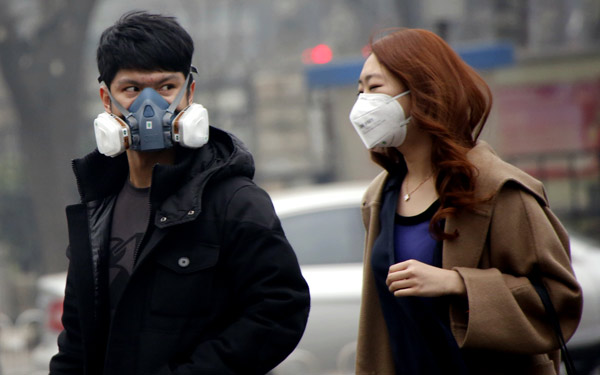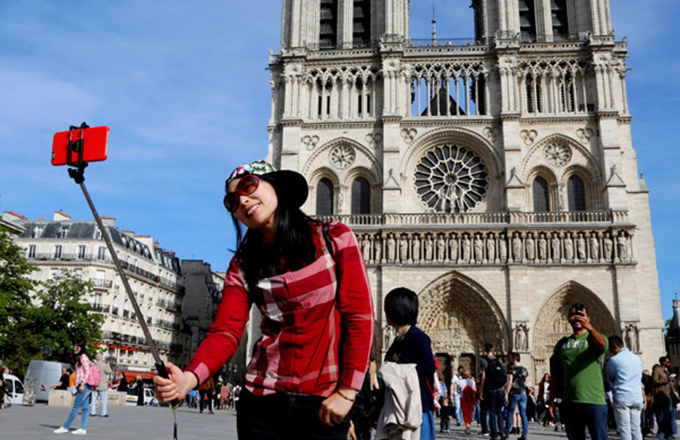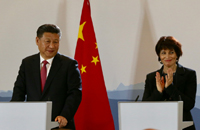Administrative resources have to be coordinated to curb air pollution
 |
|
A couple tackle the pollution in a shopping district amid heavy smog after the capital issued its first ever "red alert" for air pollution on Dec 8, 2015. [Photo/Agencies] |
THE LEAKING OF A DOCUMENT by a provincial meteorological bureau, instructing its affiliated agencies to suspend issuing smog alerts, aroused fierce discussions online because people worry who could protect their health without the alert system. The China Meteorological Administration responded that they suspended the alerts because they have different standards to the environmental protection departments, and the two are now discussing the issue. Beijing News comments:
That the meteorological and environmental agencies have different standards for the severity of smog is a problem as people do not know which one to follow. For example, the municipal meteorological bureau issued a red alert for the smog that hit Beijing earlier this month, but the environmental protection agency issued a yellow one.
It is good news that the two departments have realized the problem and decided to correct it. However, smog alerts are of key importance to people's health and they need to explain their move to the public instead of staying silent about it. More important, if the meteorological bureaus suspend their alerts, will there be a period during which people won't get any smog alerts?
Although some also worry that if a single department "monopolizes" the smog alert system, the alerts they issue might be at a lower level than it should be, such a worry is unnecessary because the law clearly states that the two departments must collaborate, and the one assigned to issue alerts should be supervising by the other.
The incident should also prompt the further coordination of various administrative resources so as to better curb air pollution. For a long time now, air quality supervision and environmental protection have been assigned to different departments, which has all too often resulted in wasted administrative resources.
These measures might be rather complicated, but they need to be taken sooner rather than later to curb air pollution.
- Air pollution masks symptom of throwaway society
- Effective incentive and punishment system helps to fight air pollution
- Beijing continues to splash billions in air pollution
- Air purifiers to protect schoolchildren from air pollution
- 62 pct of Chinese cities plagued by air pollution
- Beijing maintains orange alert for air pollution
- North China's air pollution less than expected: ministry



















